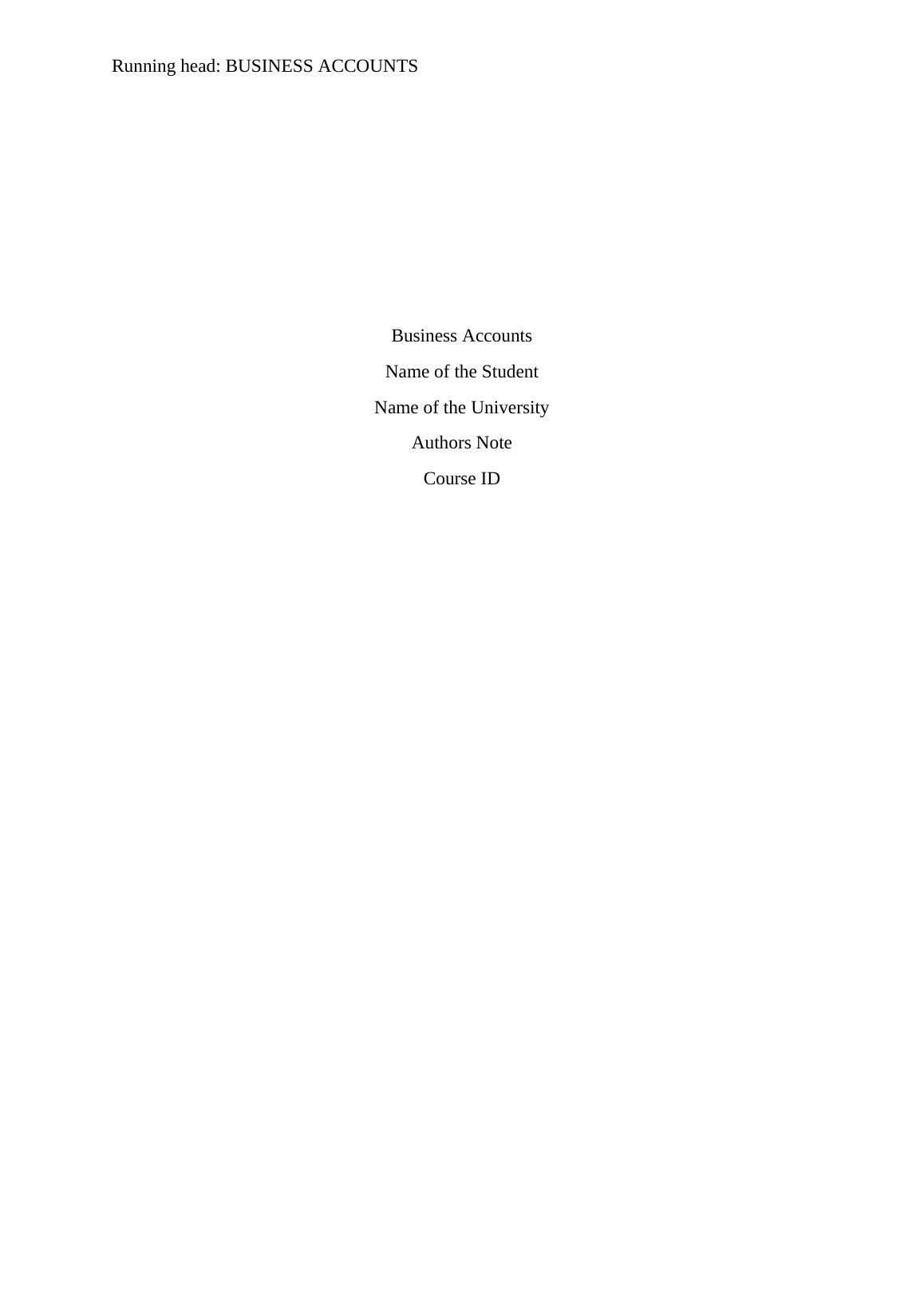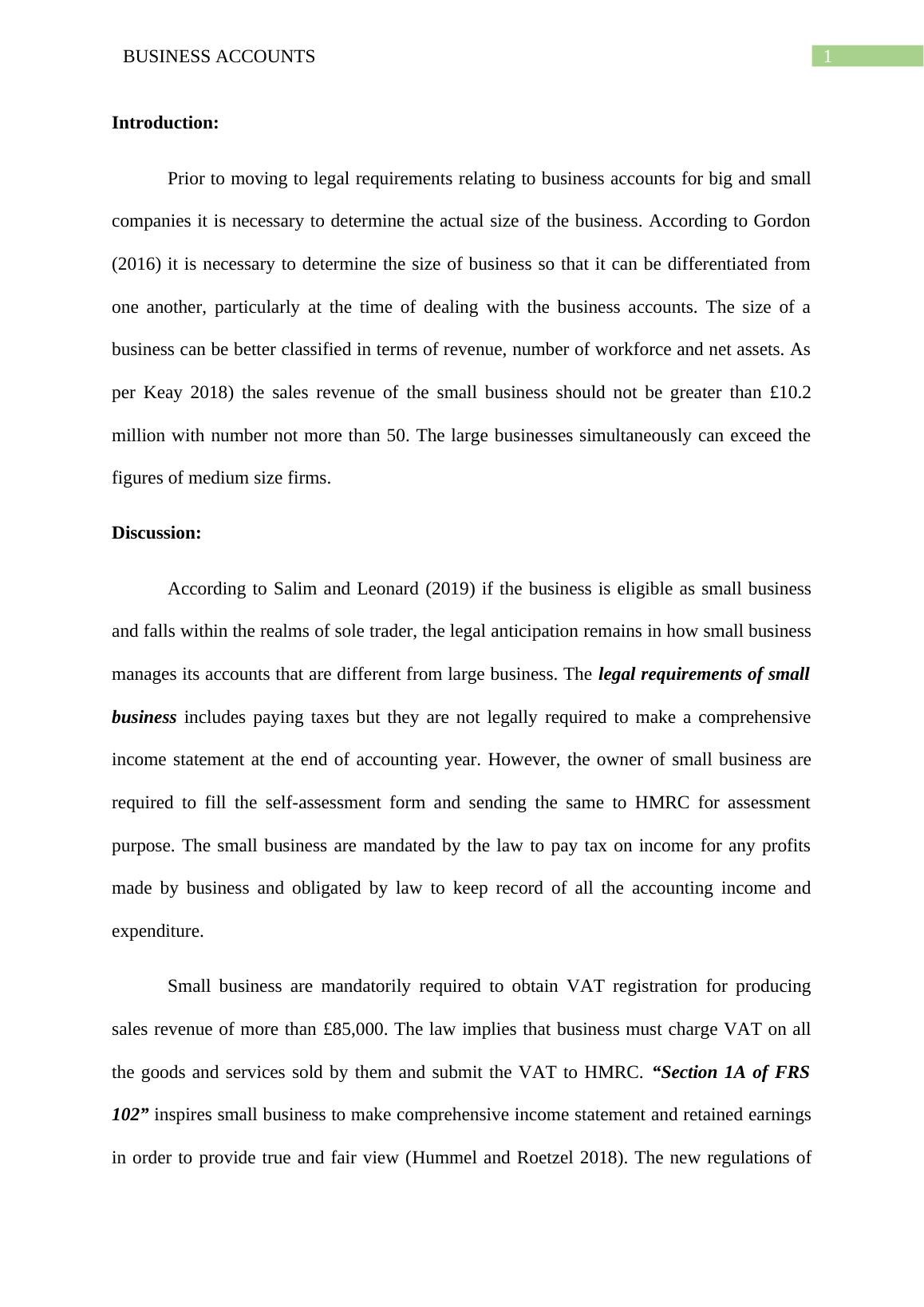Business Accounts
Summarize the legal requirements for business accounts for small and larger businesses
5 Pages1009 Words361 Views
Added on 2023-04-21
About This Document
This document provides an overview of legal requirements and accounting practices for business accounts. It discusses the differences between small and large businesses, including tax obligations, VAT registration, financial statements, and director responsibilities.
Business Accounts
Summarize the legal requirements for business accounts for small and larger businesses
Added on 2023-04-21
ShareRelated Documents
End of preview
Want to access all the pages? Upload your documents or become a member.
5 Extended Diploma in Accounting
|6
|990
|327
5 Extended Diploma in Accounting - Corporation Tax
|12
|1371
|313
Indirect Tax Assignment (Solution)
|14
|3988
|90
Study On Business & Taxation
|13
|3354
|46
Types of Businesses and Business Activities
|21
|7917
|110
22 Questions on Requirement to Pay and Submit Tax, Business Structure, Consequences, and More
|12
|2578
|99


